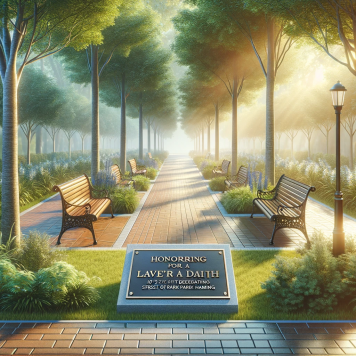Death Cafes, a relatively new phenomenon, have been gaining traction worldwide. These unique gatherings aim to break the taboo surrounding death and provide a safe space for individuals to discuss their thoughts, fears, and questions about mortality. But what exactly are Death Cafes, and what purpose do they serve? This comprehensive guide will delve into the concept of Death Cafes, their origins, their purpose, and their impact on society.
The Concept of Death Cafes
Death Cafes are informal gatherings where individuals come together to discuss death openly. The goal is not to provide therapy or answers, but to facilitate a comfortable environment for open dialogue about a topic often shunned by society.
These gatherings are not associated with any specific religion or belief system. They are inclusive spaces where people of all backgrounds can share their thoughts, experiences, and fears about death. The conversations can range from philosophical discussions about the nature of death to practical considerations such as end-of-life planning.
Origins of Death Cafes
The Death Cafe movement began in East London in 2011, initiated by Jon Underwood, who was inspired by the work of Swiss sociologist Bernard Crettaz. Crettaz had previously organized 'Cafe Mortels' in Switzerland and France, aiming to break the societal taboo surrounding death.
Underwood's idea quickly gained popularity, and Death Cafes began to spring up worldwide. Today, there are thousands of Death Cafes in various countries, each one facilitating open conversations about death in a respectful and confidential environment.
The Purpose of Death Cafes
Death Cafes serve several purposes. Primarily, they aim to demystify death and make conversations about it more commonplace. By doing so, they hope to reduce the fear and anxiety associated with death and dying.
These gatherings also provide a supportive environment for individuals who are grieving or dealing with the impending death of a loved one. They offer a space for sharing personal experiences and feelings, which can be therapeutic for many participants.
Facilitating Open Conversations
One of the key purposes of Death Cafes is to facilitate open conversations about death. In many cultures, death is a taboo subject, often avoided in everyday conversation. Death Cafes challenge this norm by encouraging participants to talk openly about their thoughts and feelings related to death and dying.
These conversations can be deeply personal, philosophical, or practical. Some participants may wish to discuss their fears about death, while others may want to explore philosophical questions about the afterlife. Still, others may wish to discuss practical matters such as funeral planning or end-of-life care.
Supporting Grieving Individuals
Death Cafes also serve as a support network for individuals who are grieving or dealing with the impending death of a loved one. The open and supportive environment allows these individuals to share their experiences and feelings, which can be a crucial part of the healing process.
While Death Cafes are not grief support groups or therapy sessions, they can provide a sense of community and understanding that can be comforting for those dealing with loss.
The Impact of Death Cafes
Death Cafes have had a significant impact on how society views and discusses death. They have helped to break down the taboo surrounding death, making it a more commonplace topic of conversation.
By providing a safe and supportive environment for open dialogue, Death Cafes have also helped many individuals to confront their fears and anxieties about death. This can lead to a healthier relationship with mortality and a greater appreciation for life.
Changing Societal Views on Death
One of the most significant impacts of Death Cafes is their role in changing societal views on death. By encouraging open and respectful conversations about death, these gatherings challenge the notion that death is a taboo subject.
This shift in perspective can have profound effects on individuals and society as a whole. It can lead to more open discussions about end-of-life care and planning, better support for grieving individuals, and a greater understanding and acceptance of death as a natural part of life.
Supporting Mental Health
Death Cafes also have a positive impact on mental health. Discussing death and dying can be therapeutic for many individuals, particularly those dealing with grief or the impending death of a loved one.
By providing a supportive environment for these discussions, Death Cafes can help individuals process their feelings and experiences, reducing feelings of isolation and anxiety. This can contribute to better mental health and well-being.
Conclusion
Death Cafes are a unique and powerful initiative that aim to change the way society views and discusses death. By facilitating open conversations about death, they help to break down societal taboos and support individuals in their journey towards understanding and accepting mortality.
Whether you're curious about the concept, dealing with a loss, or simply want to explore your thoughts and feelings about death, attending a Death Cafe can be a transformative experience. It's a reminder that death is a part of life, and that discussing it openly can lead to greater understanding and acceptance.


-banner.png)





